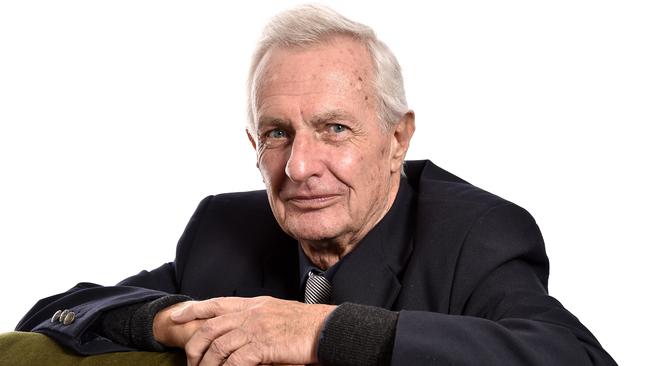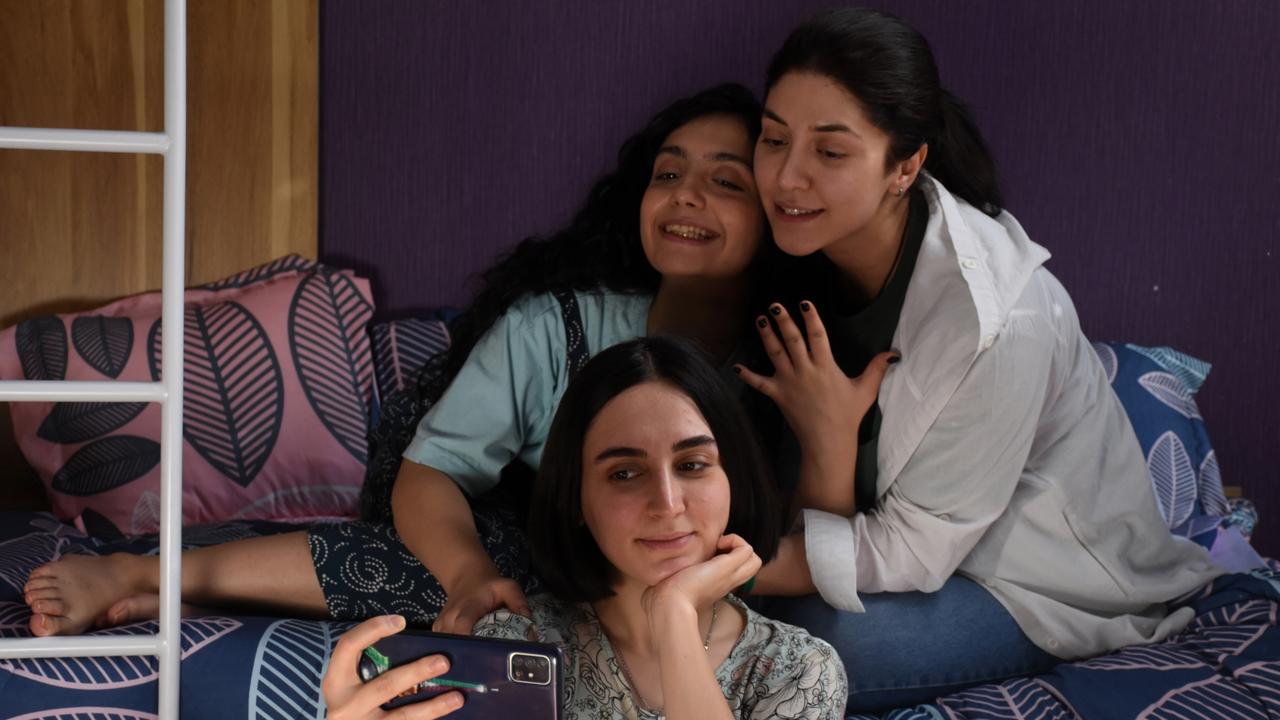Micheal Wilding’s In the Valley of the Weed: PI Plant back on the case
Michael Wilding has crafted one of the most remarkable careers of any contemporary Australian writer.

Milton scholar, political radical, publisher at Wild & Woolley, novelist and critic, Michael Wilding has crafted one of the most remarkable careers of any contemporary Australian writer.
Wilding has been a maverick within such conservative institutions as Sydney University, and by turns sociable and a loner in a society that has transmuted from the countercultural revelry of the 1960s into a present that he finds dour and riven with suspicion.
One of his notable recent triumphs (a book he classes modestly as a ‘‘documentary’’) was Wild Bleak Bohemia, a brilliant literary, cultural and personal history of three legendary and self-destructive colonial writers: Marcus Clarke, Adam Lindsay Gordon and Henry Kendall.
His autobiographical work Going Wild has also been published, and now comes the fifth outing for the private detective called Plant, In the Valley of the Weed, which sees Wilding’s hero return to the dope fields inland from Byron Bay where he had ventured in The Prisoner of Mount Warning.
The latest novel opens with a message from Plant’s friend, the dishevelled conspiracy theorist Fullalove, to make contact with the silky, sinister figure from one of the dark reaches of the Australian intelligence services, Uncle Toby, or Professor Oates as he had been in civilian life.
They meet at a restaurant at Burleigh Heads. Plant says no to a drink: ‘‘These were the days of declining things.’’
Toby informs him that his former student and ‘‘dear friend’’ Tim Vicars, who has been in Sydney on a visiting fellowship, has disappeared. His distressed partner Kate wants him found, but ‘‘we don’t think it’s a police matter’’. Further — Toby to Plant — ‘‘I see your role more in the shadows.’’
Can academic research place one in mortal danger? Vicars was ‘‘a player in two major debates’’: one concerning freedom of the internet, the other the decriminalisation of marijuana. His intervention may have made him vulnerable to attack from either side, but his own fecklessness has sent him into hiding.
Someone has hacked Vicars’s university emails, revealing ‘‘racist and sexist and homophobic stuff. Anything you’re not allowed to say.’’ The university has righteously suspended him. The social media posse is ecstatic: ‘‘Suddenly they were able to utter all those frightful words they had always wanted to say’’ — in quotation marks, of course.
Plant heads to the gated Queensland community where Kate lives with her guard dog Kim. Her information sends him on the long drive south to see what traces of Vicars may be found in his Sydney apartment.
First he holes up in Fullalove’s ‘‘inner-city hovel’’, which is stuffed with books about the secret services and pornography, all of which he intends to sell through untraceable channels: ‘‘The surveillance society, it’s like prohibition. Creates an opportunity.’’
Fullalove’s gleeful paranoia provides highlights in Wilding’s novels, through the deft, swift dialogue between Fullalove and Plant, his sounding board. The latter is instructed, for instance, about the internet, in which ‘‘there’s no censorship and everything is monitored’’.
Three more women soon complicate the search for Vicars, besides increasing the number of those who might wish him harm. One is his lover, fitness addict Bess Birmingham. Another is Angela Dark, former libertarian anarchist cum columnist on a reactionary broadsheet and now editor of the internet magazine From the Dark Side, where Vicars’s emails were published. Finally there is Jacqueline Gold, known as Agent Orange — Vicars’s literary agent — of whom Plant judges that she ‘‘was foul-mouthed, hated literature and loathed writers’’.
Plant’s interest is quickened when Vicars is found near the Queensland border. Whether he is alive or dead is for readers to find out. Magic mushrooms are involved. This leads Plant and Fullalove (apart from much else, a droll version of other famous detective pairings) into the hinterland where ageing dopeheads deal, among them Klip: ‘‘It’s short for kleptomania in a postcolonial accent.’’
Fullalove wants to get back to Sydney: ‘‘The mean streets. He needed to be jostled on pavements and solicited by beggars.’’ But Plant perseveres with his inquiries along the Weed Coast Way. His next assignation with Uncle Toby is at Gold Coast airport, where the old spook complains: ‘‘I can remember when flying was an occasion. You dressed up for it.’’
Wilding’s satirical edge never dulls, whether he is arraigning literary parasites, complacent dropouts or jaded retired academics reduced from six-hour lunches to a dreary vegan regimen. Wilding ranges across social types that he knows intimately and acerbically. His is an urbanity more tinged with disdain than sympathy. In the Valley of the Weed is another of his reckonings with strata of Australian society that are often despised and feared by the right-wing commentariat. Wilding’s understanding is much more astute.
Peter Pierce edited The Cambridge History of Australian Literature.
In the Valley of the Weed
By Michael Wilding
Arcadia, 280pp, $29.95.


